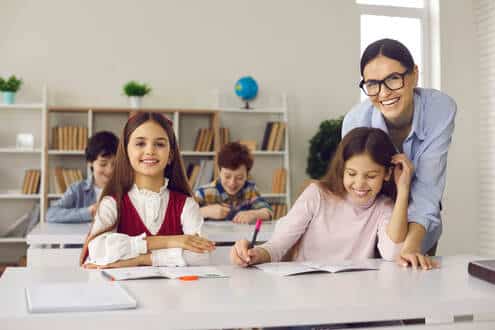Private School Lunch Catering: Nourishing Minds and Bodies, One Meal at a Time
The lunch break is more than just a pause in the school day; it’s a critical opportunity to refuel young minds and bodies, foster social interaction, and reinforce healthy habits. For many private schools, delivering a high-quality lunch experience presents unique challenges and possibilities. Unlike large public school districts with centralized kitchens, private institutions often turn to specialized private school lunch catering services to meet their specific needs and uphold their standards.
Why Private Schools Opt for Catering
Private schools typically serve a diverse community of students and parents who often have higher expectations regarding the quality, variety, and nutritional value of school meals. While some larger private schools might operate their own kitchens, many find that partnering with a professional catering company offers significant advantages:
- Expertise and Efficiency: Catering companies specialize in food service logistics, from procurement and preparation to delivery, serving, and clean-up. They bring professional culinary staff, menu planning expertise, and established relationships with suppliers, ensuring consistent quality and freeing up school staff to focus on education.
- Meeting High Expectations: Parents choosing a private education often seek a comprehensive, high-quality environment. A well-executed lunch program reflects positively on the school’s overall commitment to student well-being and provides a valuable amenity that can attract and retain families.
- Flexibility and Customization: Private school lunch catering services are often more adaptable than large, institutional food programs. They can work closely with the school to design menus that align with specific nutritional philosophies, incorporate student feedback, respond to dietary trends, and even cater special events or themed lunch days.
- Managing Complexity: Navigating food allergies, dietary restrictions (vegetarian, vegan, gluten-free, kosher, halal), and changing nutritional guidelines is complex. Professional caterers have established protocols and trained staff to handle these critical issues safely and effectively, minimizing risk for the school.
- Resource Optimization: Building and maintaining a full-scale commercial kitchen and hiring dedicated kitchen staff can be a significant capital investment and ongoing operational expense. Catering transforms these fixed costs into a more predictable, variable expense based on meals served.
The Pillars of Quality Private School Lunch Catering
A truly effective private school lunch catering program goes far beyond simply delivering food. It’s built on several key pillars:
- Nutritional Integrity: This is paramount. Meals should be balanced, incorporating lean proteins, whole grains, fruits, vegetables, and healthy fats. Caterers should adhere to or exceed national nutritional guidelines, often focusing on fresh, minimally processed ingredients and limiting added sugars, unhealthy fats, and excessive sodium.
- Variety and Appeal: Serving the same menu week after week leads to boredom and potential food waste. Good catering offers rotating menus that introduce students to new flavors and cuisines while still including kid-friendly favorites. Presentation matters – appealing food encourages students to try new things.
- Safety and Allergy Management: This is non-negotiable. Robust allergy protocols, clear labeling, dedicated preparation areas, and trained staff are essential to prevent cross-contamination and manage life-threatening allergies safely. Open communication with the school nurse and parents is key.
- Accommodation of Dietary Needs: Beyond common allergies, caterers must be equipped to handle various dietary requirements, ensuring that students with specific needs still receive complete, appealing, and safe meals.
- Sustainability Efforts: Many private schools value environmental responsibility. Partnering with caterers who prioritize sustainable sourcing, use local produce when possible, minimize food waste through careful planning, and utilize eco-friendly packaging aligns with these values.
Selecting the Right Catering Partner
Choosing a private school lunch catering service is a significant decision. Schools should look for a partner who understands the unique school environment and prioritizes student well-being. Key considerations include:
- Experience with Schools: Has the caterer worked with schools before? Do they understand the specific age groups, preferences, and logistical challenges involved?
- Menu Philosophy and Flexibility: Do their menus align with the school’s nutritional goals? Are they willing to customize and collaborate on menu development?
- Allergy Protocols: Request detailed information on their allergy management procedures. This is a critical area where shortcuts cannot be taken.
- References and Reputation: Talk to other schools or institutions they service. What is their reputation for reliability, food quality, and service?
- Communication: How responsive and communicative are they? Effective communication is vital for addressing issues quickly and planning effectively.
- Tasting Sessions: Sample the food! What looks good on paper might not taste great or be appealing to students.
The Impact of a Quality Lunch Program
Investing in quality private school lunch catering has a tangible impact. Well-nourished students are better able to concentrate in class, have more energy for activities, and are less prone to behavioral issues linked to hunger or poor nutrition. A positive lunch experience also contributes to a supportive school culture and enhances parent satisfaction, reinforcing the value of the private education investment.
In conclusion, private school lunch catering is a vital service that frees schools from the complexities of food service while upholding high standards of nutrition, safety, and quality. By partnering with the right caterer, private schools can ensure that lunch break is a nourishing, positive, and integral part of the overall educational experience, fueling student success one healthy meal at a time.













